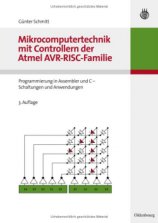Code-Beispiel
Belegten und freien Speicherplatz ermitteln..
| Lizenz: | Erster Autor: | Letzte Bearbeitung: |
| k. A. |  ytwinky ytwinky |  13.04.2013 13.04.2013 |
Ich will es gleich zu Anfang zugeben: Bei den USB-Sticks habe ich einen WorkAround benutzt(klingt etwas besser als: geschummelt ^^)
Alles was größer als 3MB ist und DriveTyp 2 hat, wird als USB-Stick angesehen..
Sonst gibt es eigentlich nicht viel zu sagen, außer(das ist aber sehr wichtig :D), daß das Programm mit der Compiler-Option -lang deprecated kompiliert werden muß. Ein Befehlszeilenaufruf wäre dann also: fbc volz.bas -lang deprecated
Benutzer der FBIde folgen einfach  meinem Tutorial, nur setzen sie dann statt -s gui eben -lang deprecated ein ;-))
meinem Tutorial, nur setzen sie dann statt -s gui eben -lang deprecated ein ;-))
In puncto Sprachkompatibilität kann ich sagen, daß es in Englisch und in Deutsch bedient werden kann, ansonsten ist es auf Windows-Benutzer beschränkt..
Gruß
ytwinky
#include "vbcompat.bi"
'+-----------------------------------------------------------------------------------+
'| Header: Bestimmen der Übergabeparameter |
'| AnzeigeCheck:|Il1 sind Alt-0124, Großes i, kleines L, Eins äöüáßÄÖÜñ±¸©ø°|
Const Author="VolZ.Bas v0182b ¸2007 by ytwinky, MD"' |
'| (Tastenkombination: keine) |
'| ACHTUNG: Funktioniert nur mit -lang deprecated |
'| Zweck : Auflisten aller/vorhandener Laufwerke mit freien und belegten Byte[MB] |
'+-----------------------------------------------------------------------------------+
Type LwRec
As ULongInt FreeUserBytes, TotalBytes, TotalFree
End Type
Const Esc=!"\27", Lf=!"\n", Rot=4, Hell=8, vk=8, MB=1024*1024
Dim As String m, dn, Prt
Dim Lw(1 To 26) As LwRec
Dim LwTyp(1, 5) As String={{"Unbekannt", "Fehlt", "Disk-Lw", "FestPlatte", "NetzLw", "CD/DVD"}, _
{"unknown", "missing", "Disk-Drive", "Hard-Disk", "Net-Drive", "CD/DVD"}}
Dim Lng(1, 1 To 9) As String={{"Jedes Lw", "Vorhandene Lw", "Was denn nun(Esc=Abbruch)", _
"Lw", "Total[MB]", "Frei[MB]", "Typ", "JV", "Zeige"}, _
{"every drive", "available drives", "Enter your choice(Esc=Abort)", _
"Dr", "Total[MB]", "Free[MB]", "Type", "EA", "Show"}}
Dim As Integer i, j, TypNr, LngSel
Width 48, 20
Declare Function GetDriveType Alias "GetDriveTypeA" (byVal nDrive As String) As Integer
Declare Function GetDriveSpecs Lib "kernel32" Alias "GetDiskFreeSpaceExA"_
(byVal lpRootPathName As String, lpFreeBytesAvailableToCaller As ULongInt, _
lpTotalNumberOfBytes As ULongInt, lpTotalNumberOfFreeBytes As ULongInt) As Integer
Function ShowDriveSpecs(dn As String, Lw As LwRec) As LwRec
Dim As Integer Back
Dim As ULongInt FreeUserBytes, TotalBytes, TotalFree
Lw.TotalBytes=0
If dn[0]<67 Then Return Lw
Back=GetDriveSpecs(dn, Lw.FreeUserBytes, Lw.TotalBytes, Lw.TotalFree)
Return Lw
End Function
Function FormatIt(byVal Value As Single) As String
Dim As String s=Format(Value, String(vk, "#") &".0")
If Value<=0 Then s=Space(vk+Len(Str(Value))+1) Else s=Space(Vk-Len(s)+2) &s
Function=s
End Function
Function MenuChar(s As String, First As Integer=1, nVG As Integer=Hell+Rot) As String
Dim As Integer cVG=LoWord(Color)
If First<>1 Then Print Left(s, First-1);
Color nVG
Print Chr(s[First-1]);
Color cVG
Return Mid(s, First+1)
End Function
'Main
m=UCase(Command(1))
If m="" Then
If m<>"E" And m<>"D" Then
Print MenuChar("Soll die Ausgabe deutsch sein?", 18)
Print MenuChar("Do you prefer english?", 15)
Print Lng(0, 3) &Lf &Lng(1, 3) &"(d | e )?:";
Do
m=UCase(Inkey)
Sleep 1
Loop Until Instr("DE" &Esc, m)>0
Print m
End If
End If
LngSel=Abs(m="E")
m=Ucase(Command(2))
If m="" Then
Print Lng(LngSel, 9)
Print MenuChar(Lng(LngSel, 1))
Print MenuChar(Lng(LngSel, 2))
Print Lng(LngSel, 3) &"(" &Lng(LngSel, 8) &"):";
Do
m=UCase(Inkey)
Sleep 1
Loop Until Instr(Lng(LngSel, 8) &Esc, m)>0
If m<>Esc Then Print m; Else End
End If
Prt=Author &Lf
Prt+=Lng(LngSel, 4) &Space(Vk-5) &Lng(LngSel, 5) &Space(Vk-5) &Lng(LngSel, 6) &Space(Vk-7) &Lng(LngSel, 7)
For i=1 to 26
With Lw(i)
dn=Chr(64+i) &":"
TypNr=GetDriveType(dn)
If (TypNr+(m=Right(Lng(LngSel, 8), 1)))>=1 Then
j+=1
Lw(i)=ShowDriveSpecs(dn, Lw(i))
Prt+=Lf &dn &" " &FormatIt(Lw(i).TotalBytes\MB) &" " &FormatIt(Lw(i).TotalFree\MB) &" "
If TypNr=2 Then
Prt+=*IIF(Abs(Lw(i).TotalBytes)>3, @"USB", @"Floppy") 'everything>3MB is considered to be a USB-Drive/-Stick
Else
Prt+=LwTyp(LngSel, TypNr)
End If
End If
End With
Next
Cls
Width 38, j+3
Print Prt &Lf &"Eniki..";
Sleep
| Zusätzliche Informationen und Funktionen |
|---|
- Das Code-Beispiel wurde am 15.08.2007 von
 ytwinky angelegt. ytwinky angelegt.
- Die aktuellste Version wurde am 13.04.2013 von
 MOD gespeichert. MOD gespeichert.
|
|
 ytwinky
ytwinky 13.04.2013
13.04.2013![]() meinem Tutorial, nur setzen sie dann statt -s gui eben -lang deprecated ein ;-))
meinem Tutorial, nur setzen sie dann statt -s gui eben -lang deprecated ein ;-))


 FreeBASIC-Nachrichten jetzt auch über Twitter erhalten. Follow us!
FreeBASIC-Nachrichten jetzt auch über Twitter erhalten. Follow us! Bearbeiten
Bearbeiten Versionen
Versionen